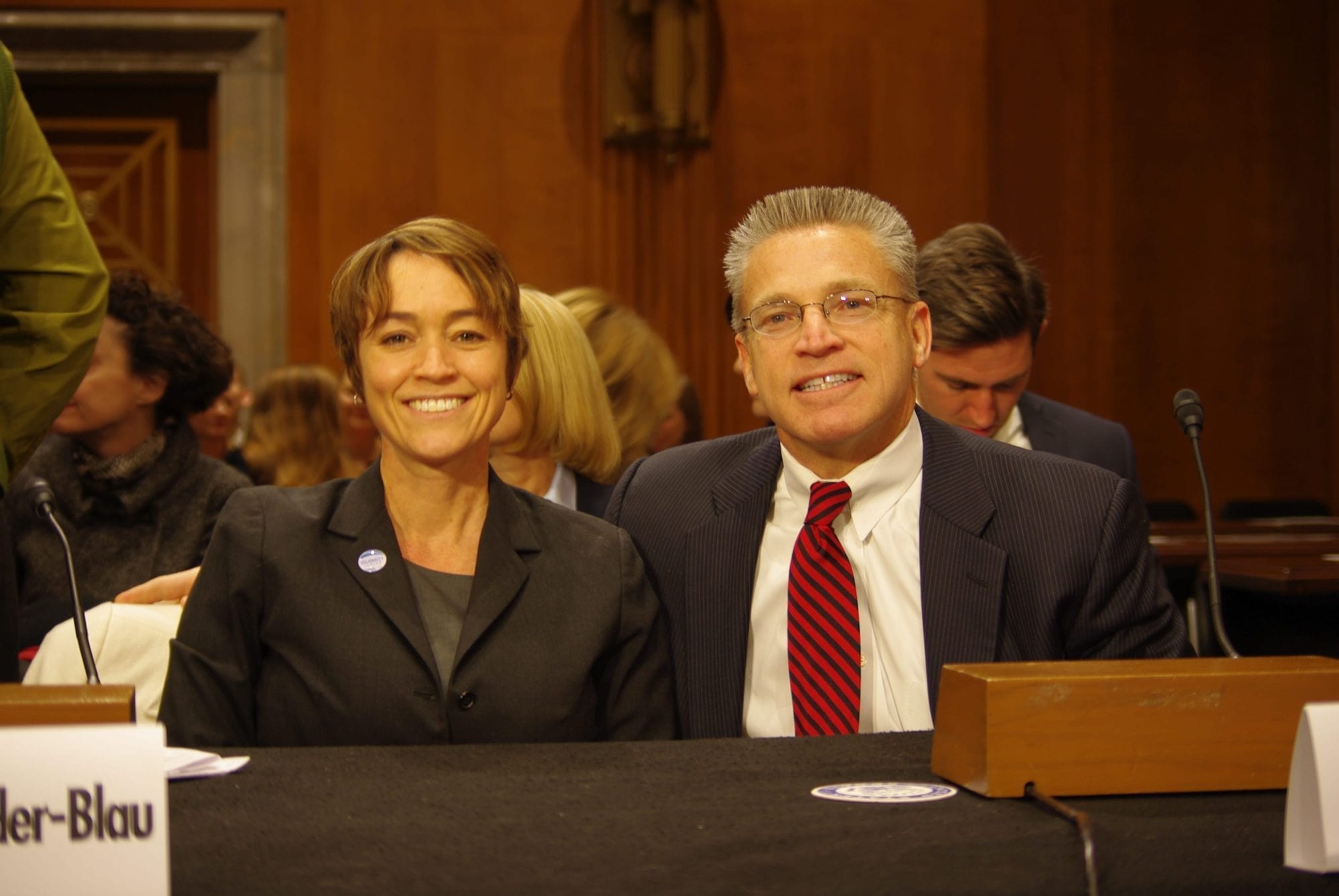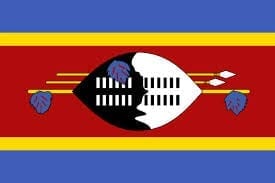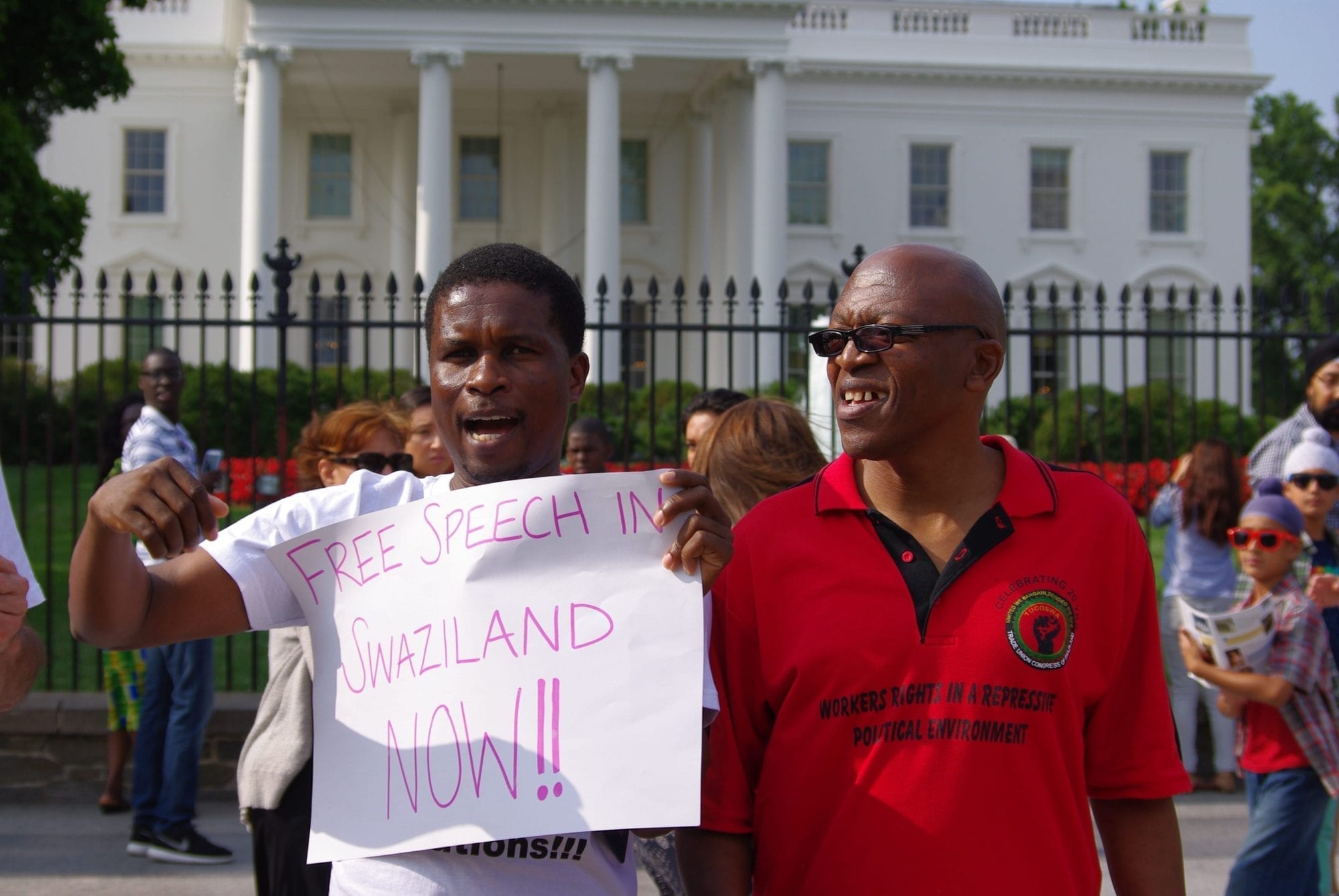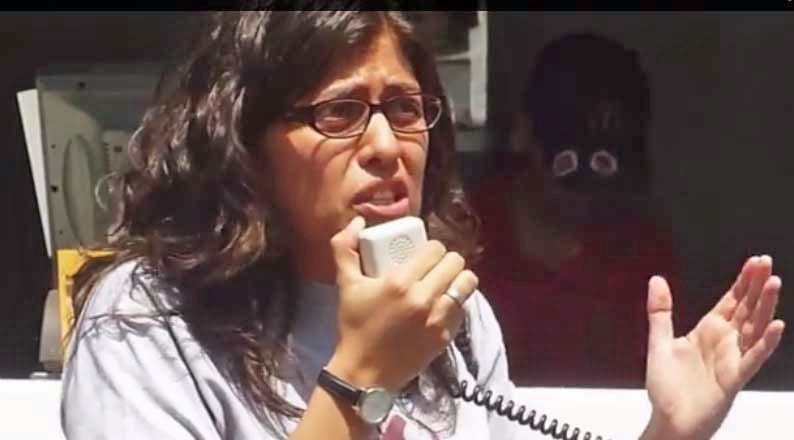Feb 6, 2015
Shawna Bader-Blau, executive director of the Solidarity Center, testified at the Senate Foreign Relations Committee hearing. She said the United States has a real opportunity to lead the fight against worker exploitation, especially with regard to upcoming negotiations on the proposed Trans-Pacific Partnership trade agreement. “Our diplomacy must be much more robust and aggressive on tackling the root causes” of forced labor, Bader-Blau told the committee, stating her belief that “it’s not too much to ask that we see real systematic changes” in how countries operate before agreeing to anything in trade negotiations.

Feb 4, 2015
Understanding the link between worker rights violations and human trafficking is the key to ending modern slavery, Solidarity Center Executive Director Shawna Bader-Blau testified today on Capitol Hill.
“Most modern slavery today is, in fact, forced labor,” Bader-Blau told the U.S. Senate Committee on Foreign Relations. “Trafficking for labor exploitation is far more prevalent than sex trafficking globally, accounting for 68 percent of trafficked people.” (Watch a video of the full hearing.)
Bader-Blau and other expert witnesses at the hearing, “Ending Modern Slavery: What is the Best Way Forward?” discussed actions and policies to help end human trafficking, debt bondage and other forms of modern slavery in supply chains around the world, including in the United States.
The vast majority of the almost 21 million people in forced labor globally are exploited in the private economy, Bader-Blau said in oral remarks and testimony submitted for the record. Illegal profits made from the use of forced labor worldwide is $150 billion per year, “exceeding the GDP of many countries.”
Instead of shackles and chains, workers are now enslaved through threats, debt and other forms of economic coercion, she said.
“We must move beyond the notion that modern “slavery is all about bad individuals doing bad things to good people,” Bader-Blau said. “We must address what one leading global expert on the international law of human trafficking, calls the ‘underlying structures that perpetuate and reward exploitation, including a global economy that relies heavily on exploitation of poor people’s labor to maintain growth and a global migration system that entrenches vulnerability and contributes directly to trafficking.’”
Bader-Blau said that based upon more the Solidarity Center’s more than 20 years of experience in the areas of child labor, migrant worker exploitation and supply chain accountability, the following steps are essential to ending human trafficking:
- Reform unsafe migration practices, which includes regulating labor recruiters, many of whom manipulate and deceive workers for profit, and banning recruitment fees, which is a primary source of debt bondage and forced labor.
- End impunity for labor traffickers. Forced labor is pervasive around the world because employers who engage in modern slavery face few consequences.
- Make it impossible for governments to allow forced labor and for companies to get away with it, including down their supply chains. Many countries with significant labor trafficking problems continue to receive trade preferences from the U.S. government, said Bader-Blau.
- Promote worker-driven solutions. Workers are key to eradicating forced labor and trafficking in supply chains. They see abuses or may themselves be exploited. First-hand reporting of abuses and exploitation by workers, unions and rights organizations shines a light on abusive practices long before a third party decides to take a look.
The other witnesses included Gary Haugen, president of the International Justice Mission; David Abramowitz, vice president of Policy and Government Relations at Humanity United; James Kofi Annan, founder of Challenging Heights, a child labor rescue organization in Ghana; and Shandra Woworuntu, a trafficking survivor.
Read Bader-Blau’s full testimony.

Oct 9, 2014
Swaziland has ordered all worker and employer federations to stop operations immediately, a demand issued yesterday in a resolution by the government cabinet. The order effectively disbands the Trade Union Confederation of Swaziland (TUCOSWA), a Solidarity Center ally.
Minister of Labor and Social Security Winnie Magagula, quoted in the Times of Swaziland, said that in the wake of the resolution, “all federations are non- existent in terms of the Industrial Relations Act and should stop operating immediately until the amendment of the Industrial Relations Act has been passed by Parliament.”
The move runs counter to international labor standards, including the right of freedom of association.
“This is a blatant and outrageous attack on the ability of working people to form associations of their choice and stand up for their rights,” said Solidarity Center Executive Director Shawna Bader-Blau. “By denying workers a voice at work, the Swazi government is preventing workers from achieving safe and healthy workplaces and wages that will support themselves and their families.”
A recent TUCOSWA survey of more than 400 textile workers in Manzini, Swaziland, found that workers in the textile sector are subject to harsh and sometimes abusive conditions, many of the country’s labor laws are routinely violated by employers, and union activists are targeted by employers for punishment.
In June, the U.S. government took the rare step of suspending African Growth and Opportunity Act (AGOA) trade benefits for Swaziland, citing the Swazi government’s systematic violations of fundamental worker rights, including lack of ability for unions to register.
Magagula was quoted as citing the International Labor Organization (ILO) as directing the move, a charge the ILO unequivocally denies.
Condemning the action, AFL-CIO International Director Cathy Feingold wrote in a letter to Swazi Prime Minister Sibusiso Dlamini that it “is the latest in a series of actions designed to repress and restrict legitimate trade union activities in Swaziland.”
Sharan Burrow, International Trade Union Confederation (ITUC) general secretary, said, “We demand that the ruling be rescinded immediately.” The ITUC also sent a letter to the Swazi prime minister, condeming the move.
In August, some in the Swazi government falsely accused TUCOSWA General Secretary Vincent Ncongwane and human rights lawyer Sipho Gumedze of taking a stand against AGOA benefits for Swaziland when they were in Washington, D.C., as part of a delegation of 40 African trade union leaders.
The 2014 U.S. State Department human rights report cites serious human rights violations in Swaziland, including arbitrary or unlawful killings by the government or its agents; severely restricted freedom of assembly, including violence against protestors; jailing of trade union leaders; the deregistration of TUCOSWA and the banning of strikes.

Aug 7, 2014
The Solidarity Center joins the global labor movement and human rights community in condemning the death threat made by the Swazi prime minister against two worker and human rights leaders who traveled to the U.S.-Africa summit this week.
Sibusiso Barnabas Dlamini, prime minister of Swaziland, told the Times of Swaziland that Vincent Ncongwane, secretary general of the Trade Union Confederation of Swaziland (TUCOSWA), and Sipho Gumede, secretary general of Lawyers for Human Rights, should be “strangled” for traveling to Washington, D.C., for the summit. (You can e-mail the Swazi prime minister to condemn his threats.)
“The Swazi government’s contempt for workers, for human rights and for civil society is evident and reprehensible,” said Shawna Bader-Blau, executive director of the Solidarity Center. “We stand with brave rights activists like Vincent and Sipho and with all Swazi workers who face repression from their own government, and we support their efforts to fight for basic rights.”
In July, Swaziland lost benefits under the Africa Growth and Opportunity Act (AGOA) for its failure to respect worker rights.

Apr 24, 2014
Alejandra Ancheita, founder and executive director of the Mexico City-based ProDESC (Project for Economic, Cultural, and Social Rights), is one of three finalists for the prestigious international Martin Ennals Award for Human Rights Defenders.
Ancheita, a Mexican lawyer and activist who leads the fight for the rights of vulnerable and excluded workers, migrants, communal landowners and indigenous communities, founded ProDESC in 2005. ProDESC is a long-time Solidarity Center ally whose work includes an ongoing campaign seeking justice for miners denied their right to organize for improved working conditions at the La Platosa mine in La Sierrita, Durango, Mexico.
“Alejandra is an unsung hero. She stands up in the face of widespread violence and impunity in Mexico—often risking her life so that Mexican workers can have justice,” said Solidarity Center Executive Director Shawna Bader-Blau. “Alejandra’s difficult and important work shines a spotlight on abuse and exploitation that generally goes unnoticed. We hope this honor helps diminish the risks she and her colleagues face every day.”
The Martin Ennals Award for Human Rights is selected by the international human rights community and given to human rights defenders who have shown deep commitment and face great personal risk. Members of the organization include Human Rights Watch and Amnesty International.
Watch a video about Ancheita.




